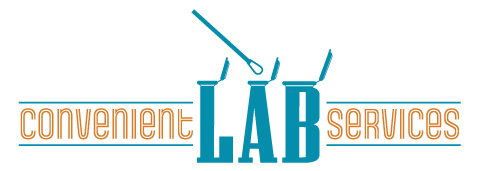Convenient Lab Services On-site Team
Our on-site drug testing team at Convenient Lab Services is composed of highly qualified professionals trained in accordance with the stringent guidelines of 49 CFR Part 40. Ready to mobilize swiftly, our team ensures expertise, training, and specific qualifications necessary to deliver exceptional service. Operating nationwide, our certified team can travel to any location to collect samples with precision and efficiency.
We guarantee that your on-site collection areas meet the rigorous standards of 49 CFR Part 40. Upon arrival, our team meticulously prepares the collection area, ensuring cleanliness and preventing cross-contamination, while prioritizing your company’s integrity and donors’ privacy. Whether at an industrial facility, construction site, or warehouse, Convenient Lab Services is equipped to meet your on-site testing needs.

We specialize in various drug testing methods:
- Urine Testing: The most common form of drug and alcohol testing, ideal for pre-employment screening, random testing, or post-accident scenarios. It detects drug metabolites present in urine.
- Hair Testing: Detects repeat drug use over a 90-day window, providing insights into usage patterns without the opportunity for evasion.
- Oral Fluid Testing: Offers quick and efficient testing, detecting recent drug use within minutes to about 48 hours.
- Evidential Breath Alcohol Testing (EBAT): Measures current levels of alcohol impairment using a breathalyzer.
Our services ensure compliance with industry standards and legal requirements, providing accurate and reliable results for informed employment decisions.
Employee screening programs are instrumental in detecting drug users and effectively deterring drug use in the workplace. Since the inception of employee drug screenings in the 1980s, there has been a consistent decline in drug use among workers subject to testing.
For companies not federally regulated (e.g., by the U.S. DOT), employers generally have considerable flexibility (within the bounds of state and local laws) in how they administer employee drug screening.
Employee drug testing serves various crucial purposes within workplace environments. While pre-employment testing is common, there are several other important reasons why employers implement drug testing policies:
Drug Testing Types
- Pre-employment Testing: Conducted after a conditional job offer, pre-employment screening helps employers ensure they are hiring individuals free from drug use. It serves as both a screening tool and a deterrent for potential applicants.
- Random Testing: Utilizing a computer-generated selection process, random drug tests apply to current employees without prior notice. This method helps maintain a drug-free workplace by deterring substance use among employees.
- Periodic Testing: Scheduled throughout the year, periodic testing involves screening current employees at regular intervals. This method is often combined with annual physicals to promote overall workplace health and safety.
- Post-Accident Testing: Conducted following workplace incidents as defined by company policy or regulatory requirements, post-accident testing aims to determine if drugs may have contributed to the incident. This type of testing is crucial for maintaining safety and compliance, particularly under OSHA guidelines.
- Reasonable Suspicion Testing: Also known as for-cause testing, this is triggered when supervisors observe specific, objective signs of drug use in an employee. It requires trained supervisors to make informed decisions based on observable behaviors or physical symptoms.
- Return-to-Duty Testing: For employees who have previously violated drug policies, return-to-duty testing occurs after completing a rehabilitation program. This ensures employees are fit to return to work and comply with company policies.
- Follow-Up Testing: Subsequent to a return-to-duty test, follow-up tests monitor employees to ensure continued compliance with policies over a specified period.
Implementing comprehensive drug policies promotes workplace safety and enhances productivity and fosters a healthier work environment for all employees.
